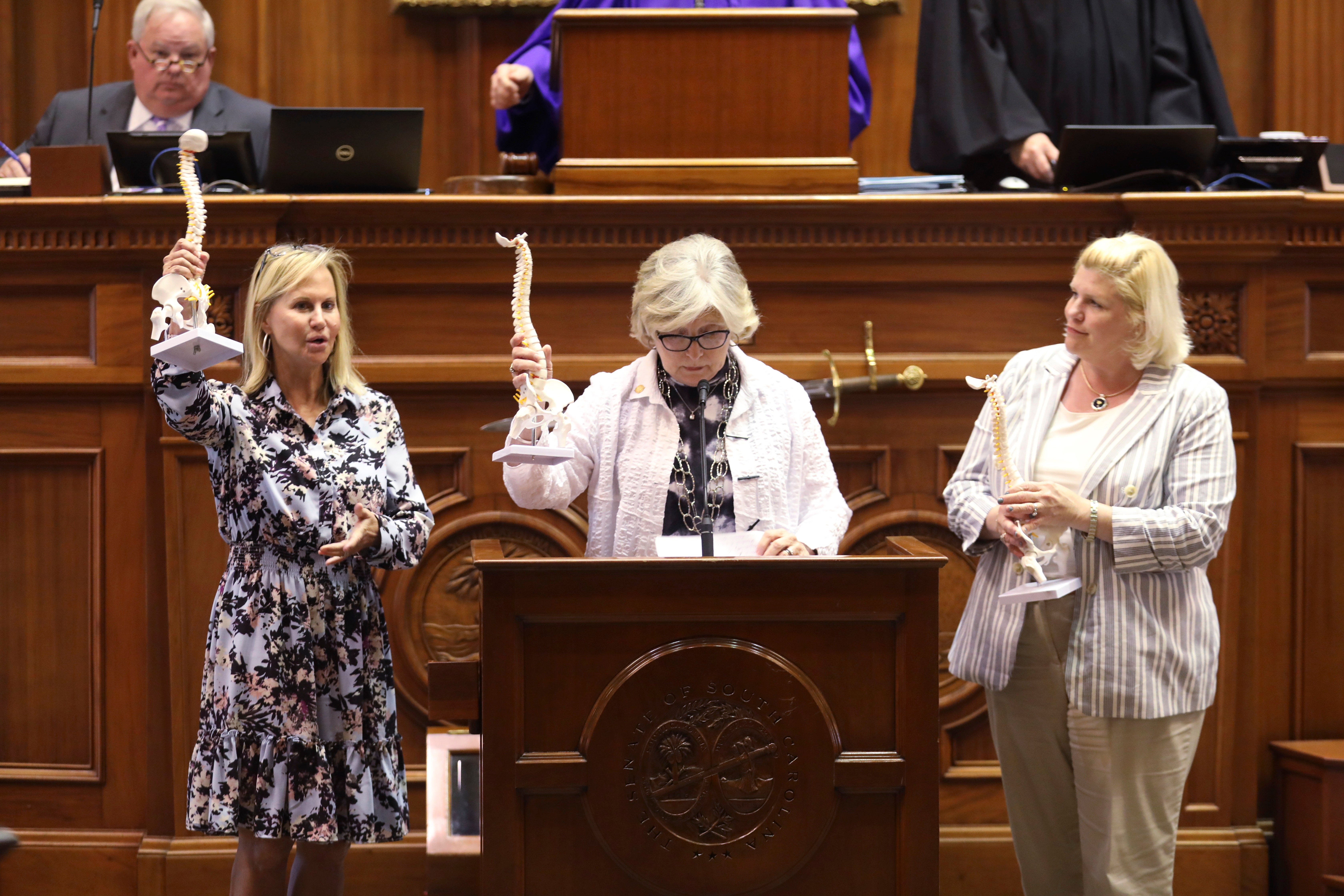Three female Republicans who tried to protect abortion rights in South Carolina lose primaries to men
Katrina Shealy, Sandy Senn and Penry Gustafson were among a bipartisan group of five women state senators, dubbed the ‘sister senators,’ who filibustered a near-total abortion ban in 2023

Three female GOP state senators who tried to protect abortion rights in South Carolina lost primary elections this month to men who ran on anti-abortion platforms.
Katrina Shealy, Sandy Senn and Penry Gustafson were among a bipartisan group of five women state senators, dubbed the “sister senators,” who filibustered a near-total abortion ban in 2023.
During the filibuster, each of the five women took turns describing the complexities of pregnancy and the reproductive system, the dangers of lack of access to contraception, and inadequate privacy laws, with all lawmakers speaking for as long as four hours each at a time. All five donned buttons that read “elect more women.”
Their filibuster halted passage of the ban, which would have prohibited abortion at conception with few exceptions for rape, incest, and life-threatening health complications for the fetus or mother.
Following their fillibuster, the five women were heckled and harassed by anti-abortion activists. The three Republicans were also met with strong opposition from their own party — including censures and promises of primary challenges in 2024.

As a result of their coordinated effort, the group was chosen last year to receive the John F. Kennedy Profile in Courage Award.
However, the women were not rewarded in this month’s primaries, with Shealy losing to Carlisle Kennedy on Tuesday after picking up only 37.5 per cent of the vote.
Kennedy’s campaign website said that he’s “proudly pro-life,” and he said he “will work to protect the unborn and advocate for policies that support mothers and families.”
Senn and Gustafson lost in primaries earlier this month. Gustafson, who represents three counties in the northern part of the state, lost by a wide margin to Allen Blackmon during the June 11 primary, who won 82 per cent of the vote.
Similarly to Kennedy, Blackmon also ran on an anti-abortion platform, saying on his campaign website that those who are “born and pre-born” are “worthy of protection.”
Meanwhile, Senn was defeated by Matt Leber, narrowly losing her race by just more than 30 votes.
Leber previously voted for a state bill, signed into law, that bans abortion after six weeks when a “fetal heartbeat has been detected.” Most women do not know they are pregnant after six weeks.
South Carolina is one of 14 states that ban abortion at nearly all stages of pregnancy after Roe v Wade was repealed in 2022 – eliminating the constitutional right to an abortion nationwide.
Since the constitutional right to abortion was banned in the US, total bans on the procedure have been implemented in Indiana and North Dakota. Meanwhile, abortions are banned after six weeks of pregnancy in Texas, and 12 weeks in North Carolina and Nebraska.
Join our commenting forum
Join thought-provoking conversations, follow other Independent readers and see their replies
Comments
Bookmark popover
Removed from bookmarks